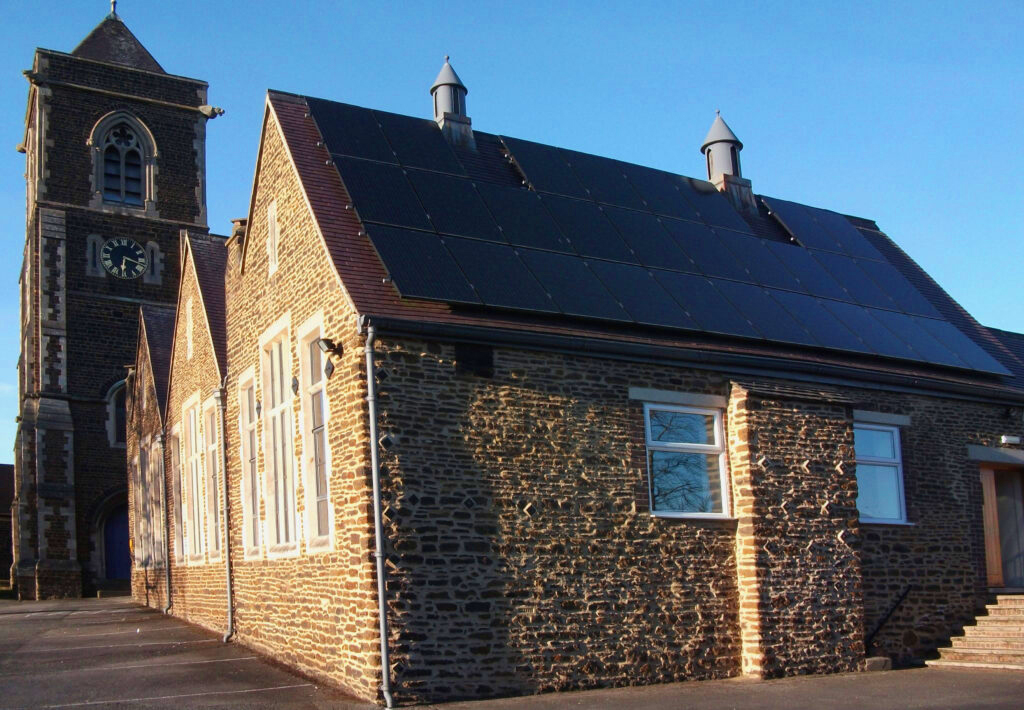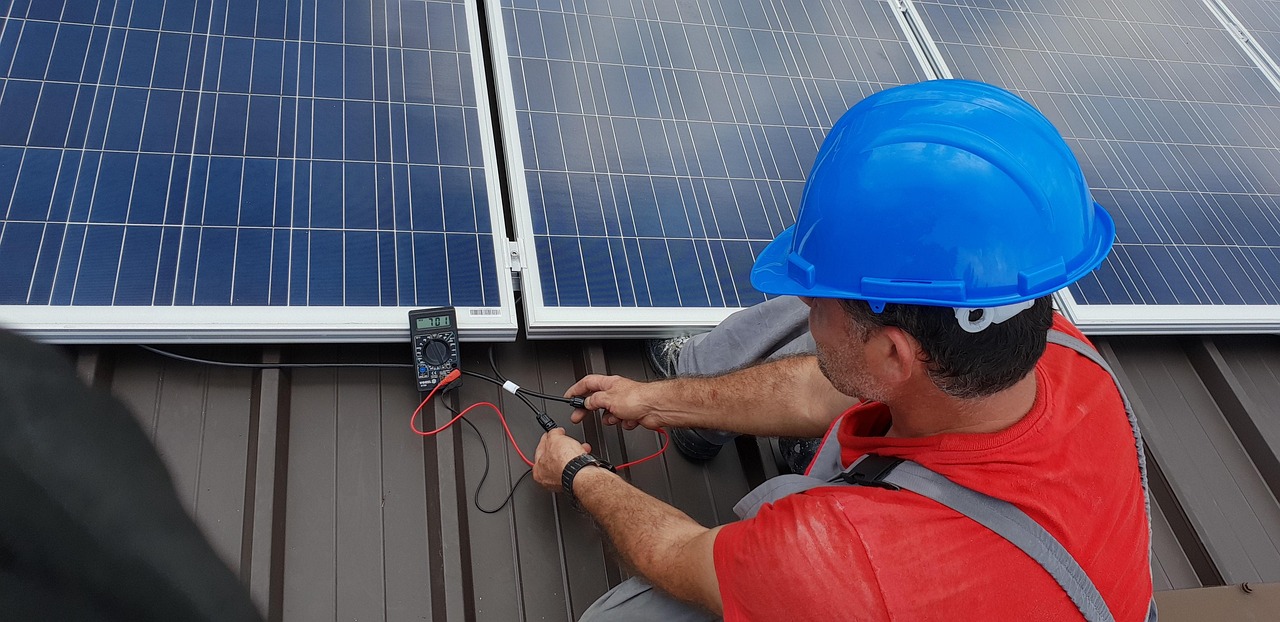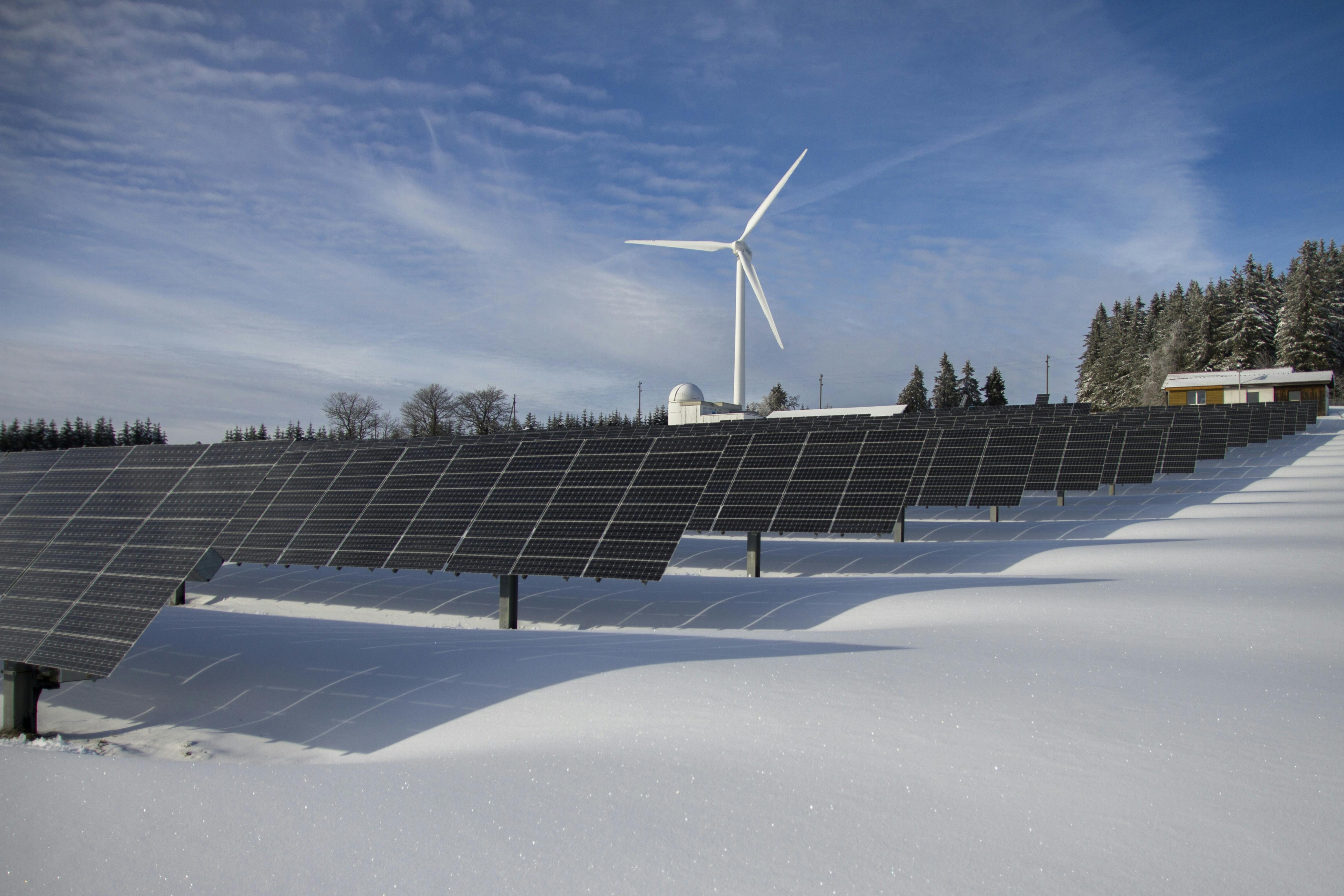Are Solar Panels Considered Green?
Explore the science behind solar's green credentials and learn why it's a crucial step towards a sustainable future.

Anyone passionate about green issues should be committed to science, and should be prepared to have their mind changed if the evidence challenges their current thinking. But we should also be aware that there are vested interests whose spokespeople will present seemingly convincing arguments against green technologies.
Time and energy is spent debunking the claims, but it’s also a cleansing experience, making us check our figures and challenge our thinking for things we’ve overlooked. In a way, anti-green lobbyists do us a favour. We have to be right.
As with any sustainable energy source, solar is not exempt from criticism. There are those who passionately oppose it, and their arguments might convince some would-be adopters to think twice. We need to put forward the case for solar, while simultaneously acknowledging its drawbacks.
That’s why we’re asking the question.
Key Takeaways:
The problem
Politically, “green” has become a catch-all word. It can refer to:
- local environmental concerns such as using pesticides, clean air, dumping raw sewage into rivers or damaging natural ecosystems.
- global concerns, most pressingly carbon in the atmosphere, where the location of emissions doesn’t matter.
- practices and technologies that do pollute or emit carbon, but in smaller quantities than before.
Sometimes, these factors are in conflict with each other. Ultimately, it’s all about balance. Campaigners against human-caused climate change should be committed to reducing the amount of carbon that is released into the atmosphere, ideally to zero. So if the maths of a technology doesn’t add up (i.e., if it is intended to reduce carbon emissions but ends up adding to it) it should not play a part in any green agenda. We have to be honest with ourselves.
But there can be a conflict between two of the interpretations of “green”. For example, a technology that is proven to reduce carbon emissions over its lifetime might lead to localised pollution, damage to ecosystems or energy-intensive mining in its manufacture. Even if the carbon equation works out overwhelmingly, would that be considered green? Or to put it another way, is the localised damage a price worth paying for a habitable world? Once the land has been exploited, it will once again be given back to nature, whereas exploited carbon sticks around.
Specifically solar
As far as solar is concerned, there is really no question that a solar panel, once constructed and installed, reduces the amount of fossil fuels a power station needs to burn. That side of the equation adds up, and the more we install, the less we need to burn.
But we have to acknowledge that not every part of the solar panel’s lifecycle is going to be the purest green. We can be sure of that, because whenever we take from the earth, there’s a risk of habitat damage; everything that is shipped from A to B uses energy; and there are energy implications to manufacture and installation. The question is about whether it’s worth it. TL:DR – we think it is.
Comparison to other energy sources
Installing solar panels is a homeowner’s own choice, largely driven by a slow conversion to renewable energy by power companies and governments. But it’s also a way of saving money, as solar power is self-generated.
How does it compare to other energy sources on the green spectrum? Once it’s installed, it’s about as green as green can be. There are zero emissions, and indeed a moderate amount of a home’s solar-derived electricity might even find its way into the grid, thus potentially cutting emissions elsewhere.
The UK is weaning itself of fossil fuels, and we do have quite significant renewable sources, mainly wind, which accounts for about 20–30% of contributions to the grid. Coal is all but gone, with just 1–2% of the UK’s power coming from that source, but gas remains significant, at around 30–35%. That’s a fossil fuel, so using less of it can only be a good thing – and domestic solar plays a part in that.
Impact of solar panel disposal on the environment
In 2021, Harvard Business Review (HBR) published an article called “The Dark Side of Solar Power”. This is considered a politically balanced publication, so its claim is worth looking into. Essentially, the thrust of the story is that there isn’t really an infrastructure to recycle solar panels, so they end up in landfill. It compares a price of a couple of dollars to bury a panel with $20–30 to break it up and recycle it.
Added to that, because the efficiency of new panels is always improving, people might be tempted to replace them long before their 30-year lifespan is up. After perhaps 10–15 years, for example, a set of panels might pass the break-even point, where installing new ones works out more cost effective, as they are more efficient.
Are these problems insurmountable? If the cost of recycling is an issue, that isn’t necessarily an issue for determined lawmakers. Rules could be put in place for manufacturers to obey certain standards and ease of dismantling, or perhaps for them to play a part in recycling, be that financially or physically.
What about growing efficiency making new panels more cost-effective? While it’s no doubt a good thing that efficiency is improving, panels that have been in operation for 15 years nowadays will necessarily be less efficient than a modern one, which will probably reach around 20% efficiency. It may well be worth replacing very old panels, but the good news is that the new generation of panels are approaching the theoretical limits of efficiency, so may well remain optimum for much longer.
As HBR itself concludes:
“None of this should raise serious doubts about the future or necessity of renewables. The science is indisputable: Continuing to rely on fossil fuels to the extent we currently do will bequeath a damaged if not dying planet to future generations.”
Impact of solar panel production on the environment
Making solar panels is an industrial process. It involves the extraction or recovery of raw materials and processing and purifying them, as well as transportation to and from the factory of materials and finished products. One of the most energy intensive parts of the process is melting sand to make the glass that forms the basis of the structure. At present there’s no way of doing this without burning fossil fuels. There are also various metals and plastics involved in making the frames and electronics.
While this obviously has an impact, the question is whether the net result is negative or positive for the climate and, therefore, the environment as a whole. There isn’t a green technology that has no impact during manufacture. Yes, we should always strive to minimise damage to natural habitats and the atmosphere. But on balance, reducing greenhouse emissions helps everything.
Also, although we mentioned above that the solar recycling industry is undeveloped, that is something that will surely change. The volume of panels ready for renewal is only growing, and that should make their recycling more viable for private and public organisations.
What is the true carbon footprint of solar panels?
A carbon footprint can only be known when the manufacture and transportation is compared with the reduction in emissions caused over their operational lifetime. Both sides of the equation have huge variables.
A panel made in small batches, using energy intensive means of extraction, then transported halfway around the world will have a high initial energy cost. Larger production lines, more local extraction, manufacture and delivery, and the use of recycled materials will make a product with a smaller initial carbon cost.
Once a panel is in place, it starts repaying the carbon cost by reducing the amount of fossil fuels that need to be burned. But that figure is influenced by its location, orientation, prevailing weather conditions and how well it is maintained.
You can get an estimate of how much carbon emission you’ll prevent with a personalised solar panel planner. As for the cost of manufacture, you should seek out suppliers who take the carbon footprint of solar panel manufacture seriously, and opt for locally produced panels wherever possible. Only then can you be sure you’re minimising the negative side of the equation.
Is solar 100% sustainable?
As long as the sun is shining and the earth is orbiting it, we’ll be able to extract energy from its rays. On that basis, it’s a completely sustainable source of energy (for the next 5 billion years, anyway). However, every device used to capture natural energy, be it from solar, wind or wave, does have a limited lifespan. It needs manufacture, repair and replacement at some point.
So to say a solar panel is 100% sustainable might not be strictly true, but while it is in operation, it is generating electricity while releasing zero carbon into the atmosphere. On that basis, it’s as sustainable as it’s possible to be.
Final thoughts
If we’re serious about being green, we should question everything, and we should be grateful for having our assumptions challenged in good faith by reputable sources. That’s because if we’re wrong, and the measures we’re taking to reduce carbon are actually increasing it, we are helping no one.
But solar power has been in use for decades now, and the only real thing holding it back has been the scale of the industry, and the abundance and convenience of fossil fuels. We’ve got the figures, and we know in incredible detail how efficient and effective solar power is.
There is no doubt in our minds, or among the wider scientific community, that solar power is green. As its cost of manufacture continues to drop, and extra efficiency is squeezed out through new technologies, its net benefits will only grow. If you’re convinced, like we are, why not run your property through our calculator and see how installing solar panels could work for you. We’ll even point you in the direction of local installers to make the whole process painless.
Still not convinced? Those who have solar panels installed in Surrey have saved on average around £1401 a year. Think of what you can do with those savings!
Ready to see what you can save?
Our solar calculator is 100% free to use. Enter your postcode below to get started.

Based on 400+ Trustpilot reviews






